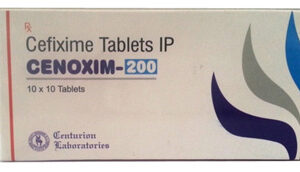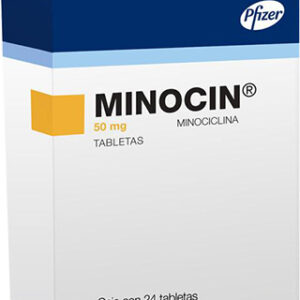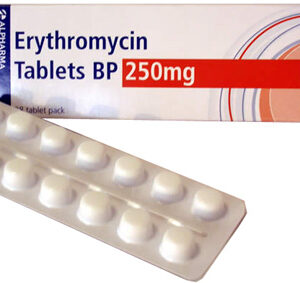Erythromycin Overview
An established antibacterial therapy, Erythromycin functions as an essential medication for managing diverse bacterial infections. Formulated as base, stearate, estolate, or ethylsuccinate salts for maximum efficacy, it presents a critical option for patients sensitive to penicillins or those infected with penicillin-resistant bacterial strains.
Indications and Usage
Erythromycin combats a multitude of infections – from upper respiratory tract afflictions like streptococcal pharyngitis to skin conditions such as acne vulgaris. This versatile pharmaceutical is also indicated in treating sexually transmitted diseases, like chlamydial urethritis, and can prevent rheumatic fever in susceptible individuals.
Dosage and Administration
The dosage of Erythromycin often hinges on the infection severity and the patient profile. An adult’s typical oral dose ranges from 250 mg to 500 mg every 6 hours, while pediatric dosages are usually calculated based on body weight. Critical is adherence to a consistent dosing regimen for the duration prescribed, without ceasing the medication prematurely.
Contraindications
Erythromycin should be avoided by individuals with a known hypersensitivity to it or any macrolide antibiotic. Patients suffering from pre-existing liver disease should exercise caution, particularly with estolate salts known for hepatic complications.
Warnings and Precautions
While generally considered safe, Erythromycin can cause hepatotoxicity and QT prolongation, necessitating monitoring in at-risk populations. In cases of myasthenia gravis, vigilant patient assessment is needed as exacerbation has been reported.
Drug Interactions
The interplay between Erythromycin and other substances can result in adverse drug reactions or diminished therapeutic effects. Concurrent use with drugs metabolized by the CYP3A enzyme system, for instance, may alter the metabolism rates of said drugs, necessitating dosage adjustments or substitution.
Adverse Reactions
Despite its therapeutic benefits, Erythromycin can instigate several side effects ranging from gastrointestinal disturbances like nausea and diarrhea to more severe reactions such as anaphylaxis or jaundice. Monitor patients closely for any signs of adverse reactions, and address them promptly.
Use in Specific Populations
Pregnant or nursing mothers must weigh the benefits against potential risks before commencing Erythromycin therapy. Furthermore, pediatric and geriatric populations may require tailored dosages to acclimatize to their distinct physiological conditions.
Overdosage
In the event of an overdose, supportive measures are paramount. These may include gastric lavage or emesis induction, monitoring of vital functions, and addressing symptoms as they manifest.
Erythromycin Pharmacology
Erythromycin, belonging to the macrolide class, works by inhibiting protein synthesis in susceptible bacteria, thereby stunting their growth. It demonstrates post-antibiotic effects, retaining its bacterial suppression activity even after plasma levels have decreased.
Clinical Studies
Erythromycin’s efficacy has been proven in clinical trials across various bacterial infections. Intensive studies have revealed its effectiveness in conditions such as streptococcal pharyngitis, legionnaires’ disease, and pertussis, among others.
How Supplied/Storage and Handling
This antibiotic comes in various forms including tablets, capsules, topical gels, and ointments. Store Erythromycin at room temperature away from light and moisture, ensuring it is kept out of reach from children and pets.
Patient Counseling Information
Patients should be instructed on the correct regimen. They should also be informed about possible side effects, managing them, and the importance of completing the entire course of therapy. Additionally, ensure that patients are aware of the potential interactions if they are taking other medications.
Erythromycin FAQ
Patients often question about the necessity for food intake with Erythromycin or the repercussions of missed doses. The medication can be taken with or without food and if a dose is missed, it should be taken as soon as possible unless it’s close to the next scheduled dose.






Reviews
There are no reviews yet.